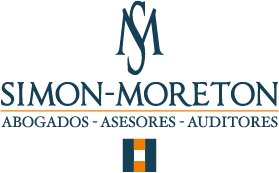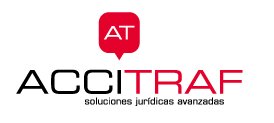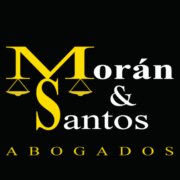Best Nonprofit & Charitable Organizations Lawyers in Salamanca
Share your needs with us, get contacted by law firms.
Free. Takes 2 min.
List of the best lawyers in Salamanca, Spain
About Nonprofit & Charitable Organizations Law in Salamanca, Spain
Nonprofit and charitable organizations play a vital role in Salamanca, Spain, supporting social, cultural, educational, and humanitarian causes throughout the region. These organizations, known in Spanish as asociaciones sin ánimo de lucro or organizaciones no gubernamentales (ONG), are governed by a combination of national and regional laws that define their formation, operation, responsibilities, and tax obligations. Whether you are looking to create a new association, participate as a volunteer, or ensure your existing nonprofit complies with legal obligations, understanding the legal landscape is crucial for sustainability and effectiveness.
Why You May Need a Lawyer
Navigating the legal framework for nonprofits in Salamanca can be complex. Some common scenarios where legal expertise is beneficial include:
- Establishing a new nonprofit or charitable entity
- Drafting and amending bylaws or governing documents
- Registering the organization with relevant bodies
- Seeking recognition of public utility status
- Understanding and complying with local, regional, and national tax requirements
- Managing disputes among members or between the board and members
- Ensuring lawful fundraising and grant applications
- Handling employment and volunteer agreements
- Closing or merging nonprofit entities
A specialized lawyer can provide guidance, draft necessary documents, represent your organization before authorities, and help protect the interests of your organization and its members.
Local Laws Overview
Nonprofit organizations in Salamanca are primarily governed by Spanish national law, such as Organic Law 1/2002 on the Right of Association, alongside regional regulations established by the Junta de Castilla y León. Key legal aspects include:
- Formation and Registration: Nonprofits must formalize their statutes, appoint a board of directors, and register with the Registro de Asociaciones of Castilla y León or, for certain types, at the national level.
- Statutes and Governance: Organizations require clearly defined statutes covering objectives, governance, membership, and decision-making processes.
- Transparency and Reporting: Annual financial statements and activity reports are required, and, depending on size and recognition, external audits may be necessary.
- Taxation and Benefits: Nonprofits may be eligible for tax exemptions or reductions, but must comply with strict reporting rules and public benefit requirements.
- Fundraising and Donations: Activities such as public fundraising, receiving donations, and applying for public grants must adhere to transparency, anti-fraud, and ethical guidelines.
- Employment and Volunteers: Legal requirements exist for contracts, insurance, and workplace safety, both for paid staff and volunteers.
Frequently Asked Questions
What is required to create a nonprofit organization in Salamanca?
You must draft statutes, hold a constituent meeting with at least three founding members, and register the organization at the appropriate public registry, usually the Registro de Asociaciones of Castilla y León.
Is it necessary for a nonprofit to have a public benefit status?
No, but obtaining public benefit status (utilidad pública) offers tax advantages and enhances the organization’s credibility, though it involves stricter requirements and oversight.
Can foreigners set up or join nonprofit associations in Salamanca?
Yes, both EU and non-EU citizens may establish and participate in nonprofits, provided they meet the legal requirements.
Are nonprofits subject to taxes in Salamanca?
Nonprofits are subject to certain taxes but may qualify for exemptions and reductions, especially if recognized as public benefit organizations. Tax compliance and reporting remain mandatory.
What obligations do nonprofits have regarding their finances?
Nonprofits must maintain accurate accounting records, prepare annual financial statements, and, in some cases, undergo independent audits. These documents are often submitted to the respective registry.
How are disputes within a nonprofit typically resolved?
Disputes are ideally resolved through mechanisms set out in the statutes, but if unresolved, may be taken to court, often requiring legal representation.
Can a nonprofit pay salaries to its staff or board members?
Yes, organizations may hire staff and compensate board members for their roles or services, but this must comply with legal limits and be expressly stated in the statutes.
What are the requirements for fundraising and accepting donations?
Fundraising must be transparent and comply with legal and ethical standards. Donation receipts, especially for tax-deductible contributions, must meet formal requirements.
How can an organization be dissolved?
Dissolution must follow procedures laid out in the statutes and applicable law. Remaining assets are typically distributed to similar nonprofits or public bodies.
What are the most common legal mistakes new nonprofits make?
Frequent mistakes include neglecting proper registration, failing to update statutes, insufficient record-keeping, and misunderstanding tax duties. Legal guidance can prevent these issues.
Additional Resources
If you need further assistance or information concerning nonprofits and charitable organizations in Salamanca, consider reaching out to:
- Registro de Asociaciones de Castilla y León - Responsible for registering and supervising associations in the region
- Ministerio del Interior - National registration and oversight of certain nonprofit types
- Ayuntamiento de Salamanca - Local government office that can provide information on municipal grants or requirements
- Various local bar associations and professional societies offering legal clinics or referrals
- Organizations such as Plataforma de Voluntariado de Salamanca and Fundación Salamanca Ciudad de Cultura y Saberes for sector support and training
Next Steps
If you require legal advice or support for your nonprofit or charitable organization in Salamanca, you should:
- Identify your specific legal needs, such as formation, compliance, or dispute resolution
- Gather key documents, such as statutes, member lists, and financial records
- Consult with a lawyer experienced in nonprofit law, ideally one familiar with local and regional requirements
- Contact local legal aid services or the bar association for lawyer recommendations
- Stay informed about responsibilities and deadlines through official channels and sector organizations
Taking proactive steps and seeking qualified legal guidance will help ensure your nonprofit thrives within the legal framework of Salamanca, Spain.
Lawzana helps you find the best lawyers and law firms in Salamanca through a curated and pre-screened list of qualified legal professionals. Our platform offers rankings and detailed profiles of attorneys and law firms, allowing you to compare based on practice areas, including Nonprofit & Charitable Organizations, experience, and client feedback.
Each profile includes a description of the firm's areas of practice, client reviews, team members and partners, year of establishment, spoken languages, office locations, contact information, social media presence, and any published articles or resources. Most firms on our platform speak English and are experienced in both local and international legal matters.
Get a quote from top-rated law firms in Salamanca, Spain — quickly, securely, and without unnecessary hassle.
Disclaimer:
The information provided on this page is for general informational purposes only and does not constitute legal advice. While we strive to ensure the accuracy and relevance of the content, legal information may change over time, and interpretations of the law can vary. You should always consult with a qualified legal professional for advice specific to your situation.
We disclaim all liability for actions taken or not taken based on the content of this page. If you believe any information is incorrect or outdated, please contact us, and we will review and update it where appropriate.











